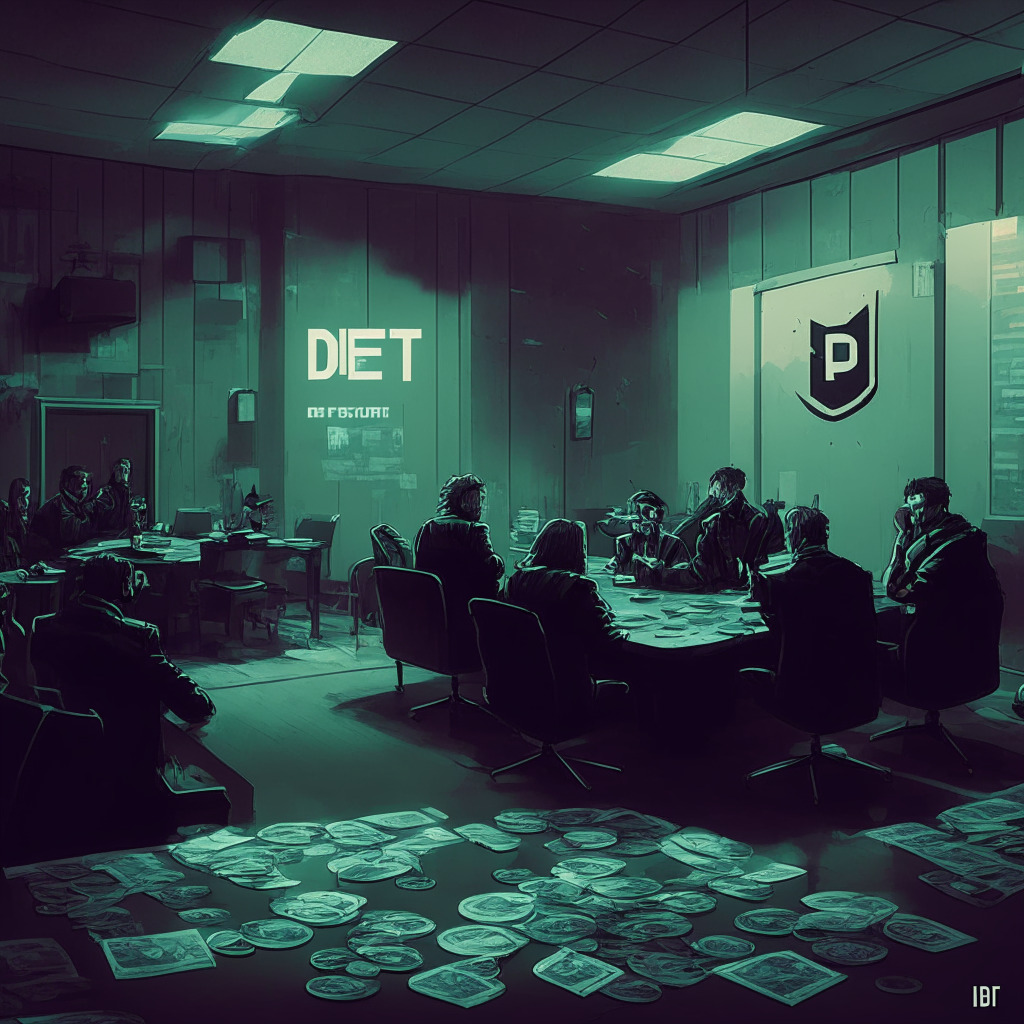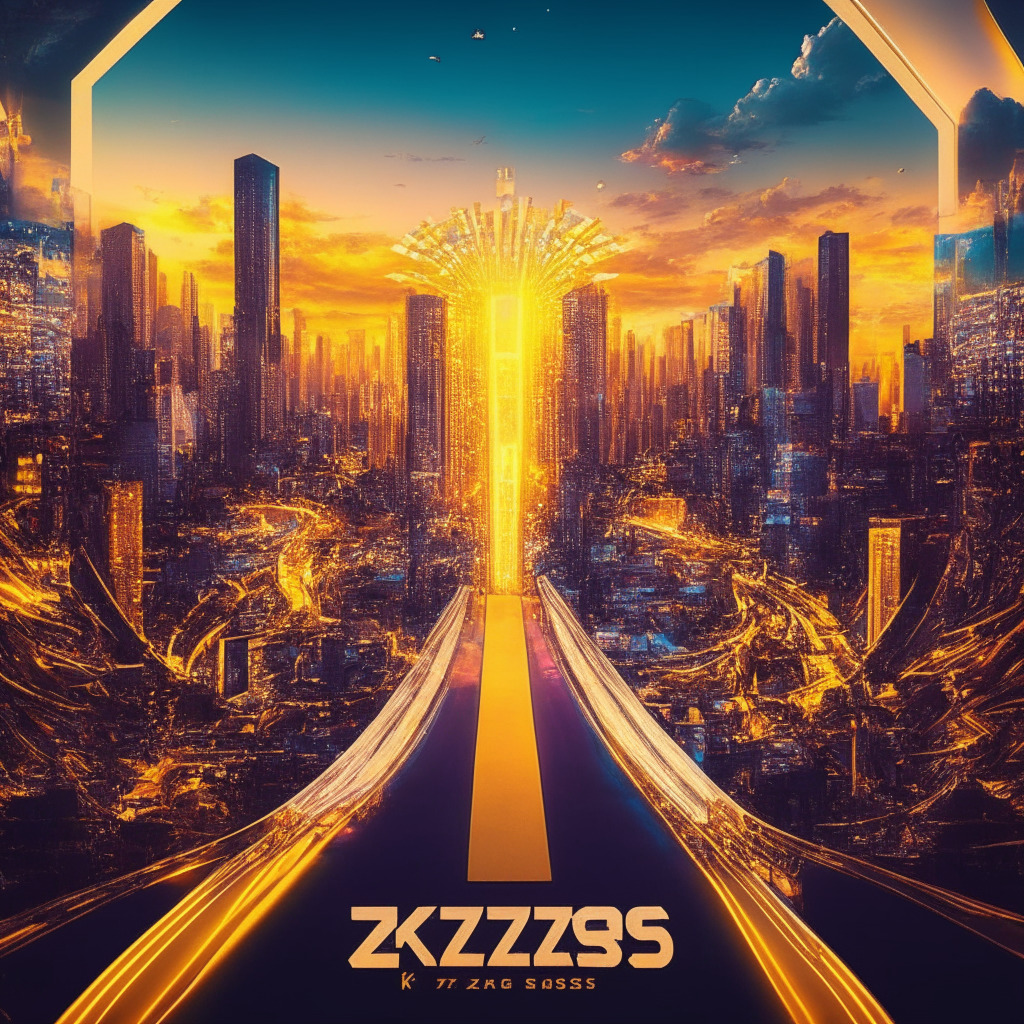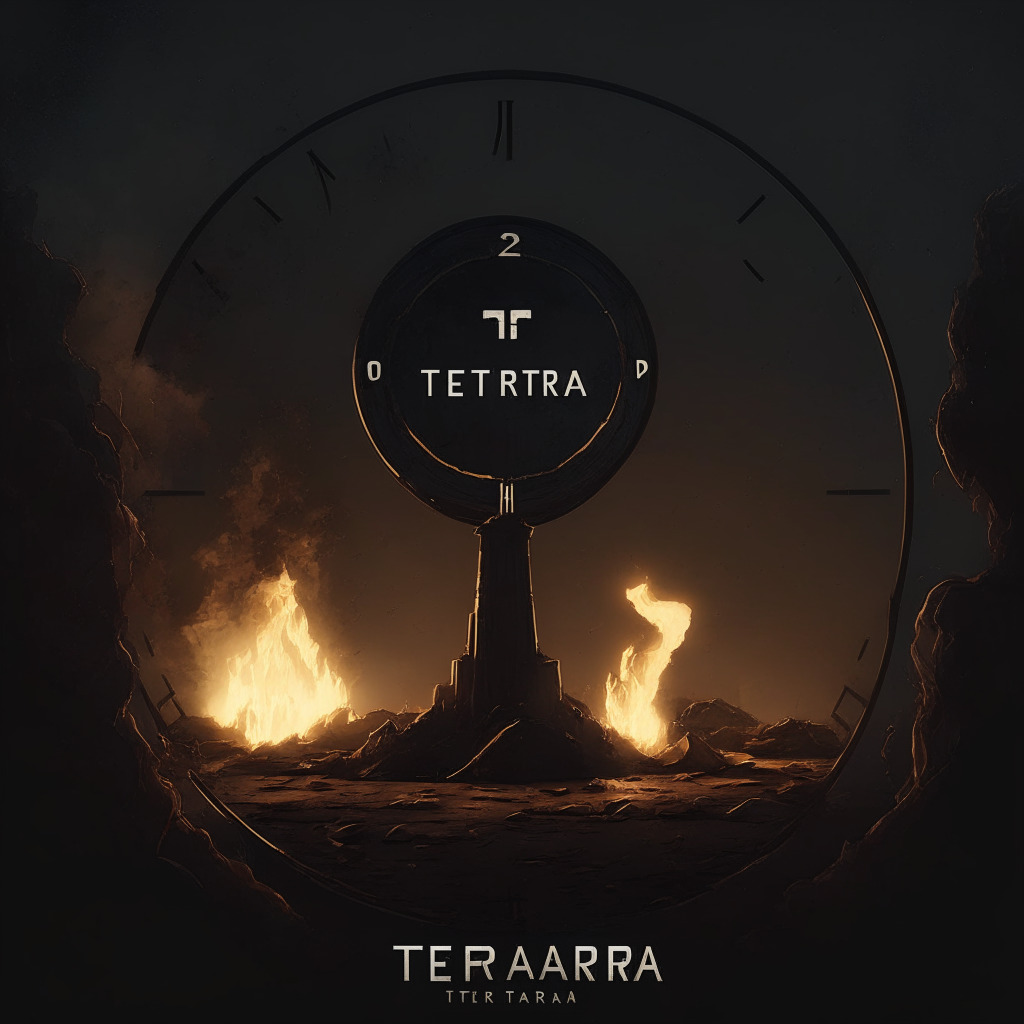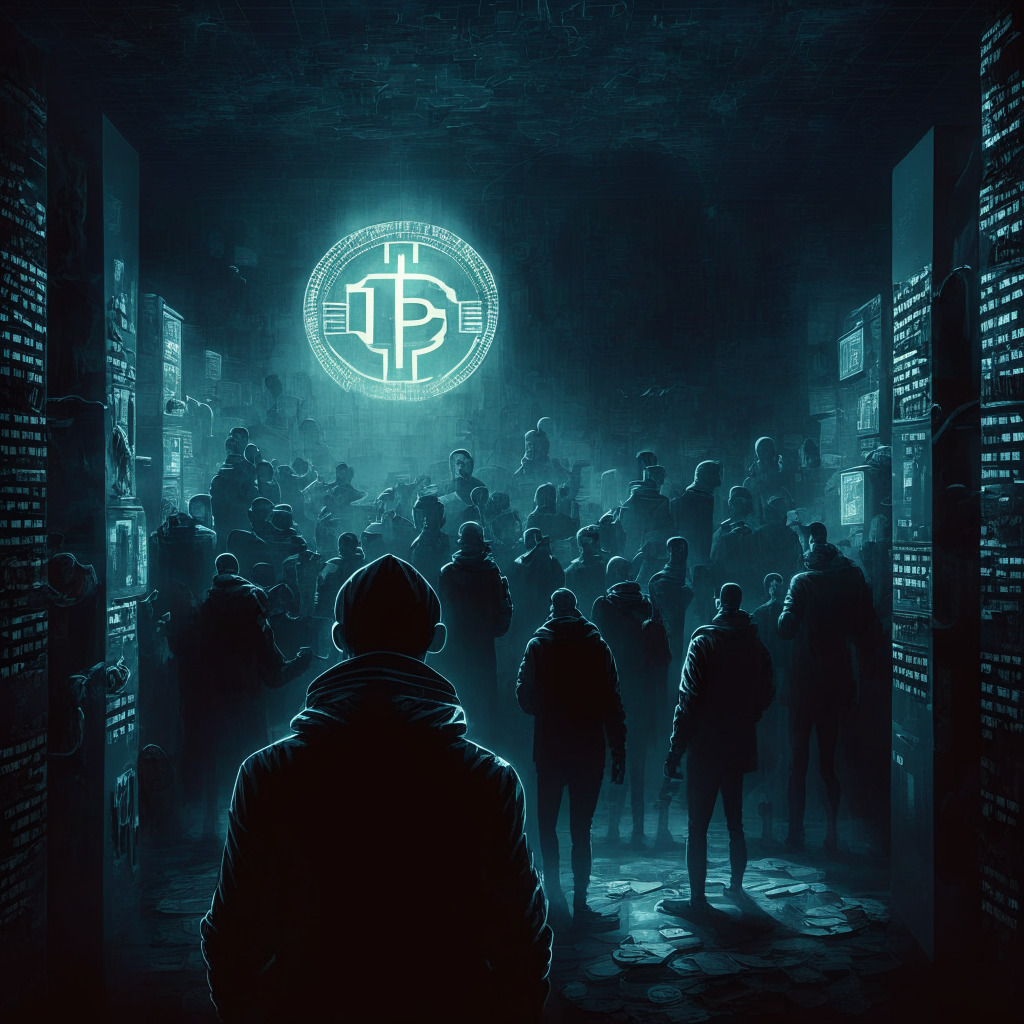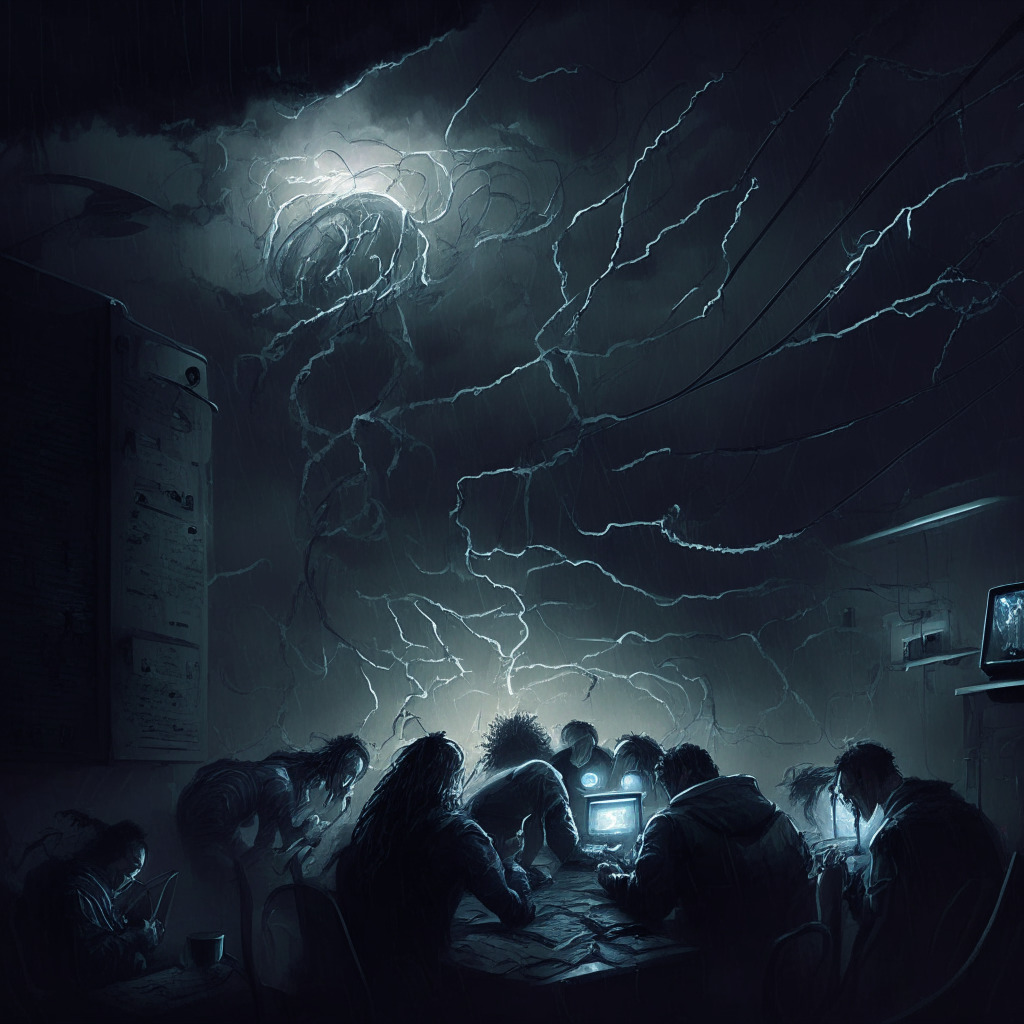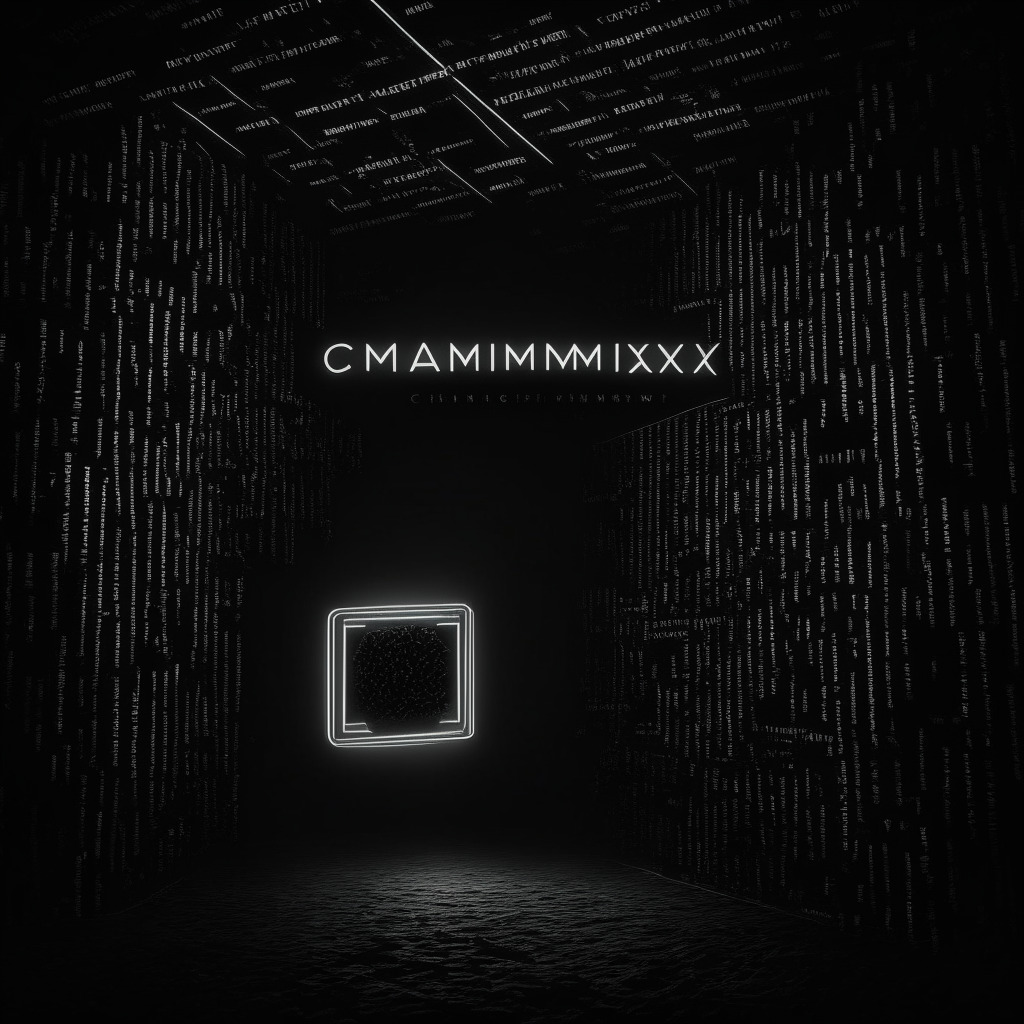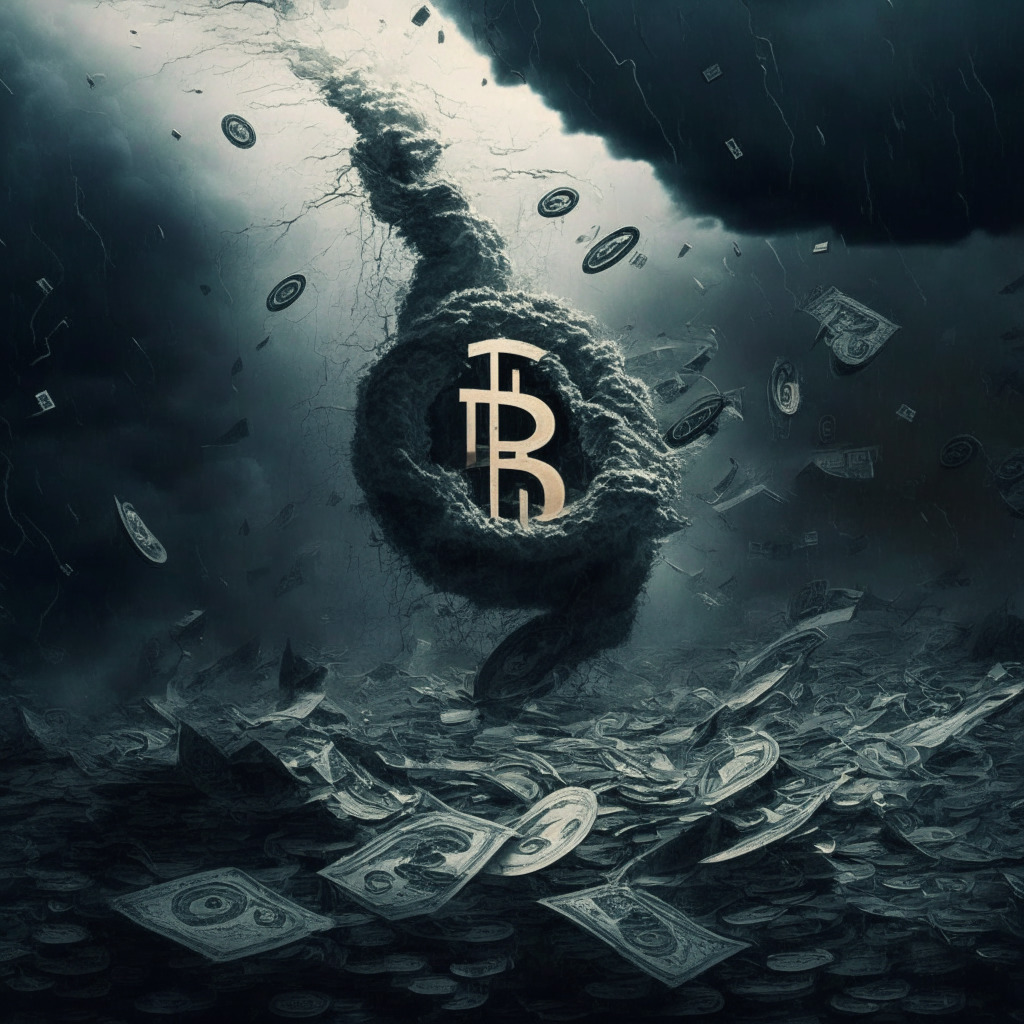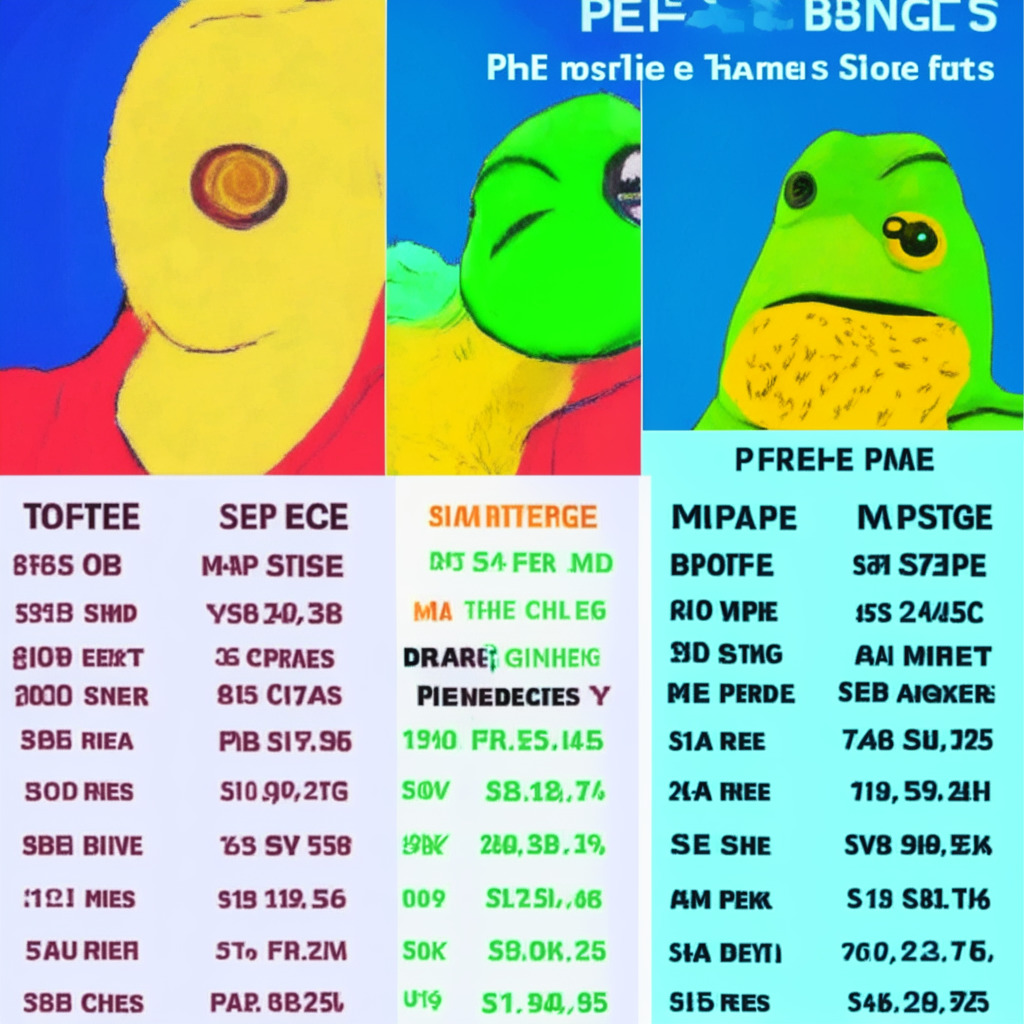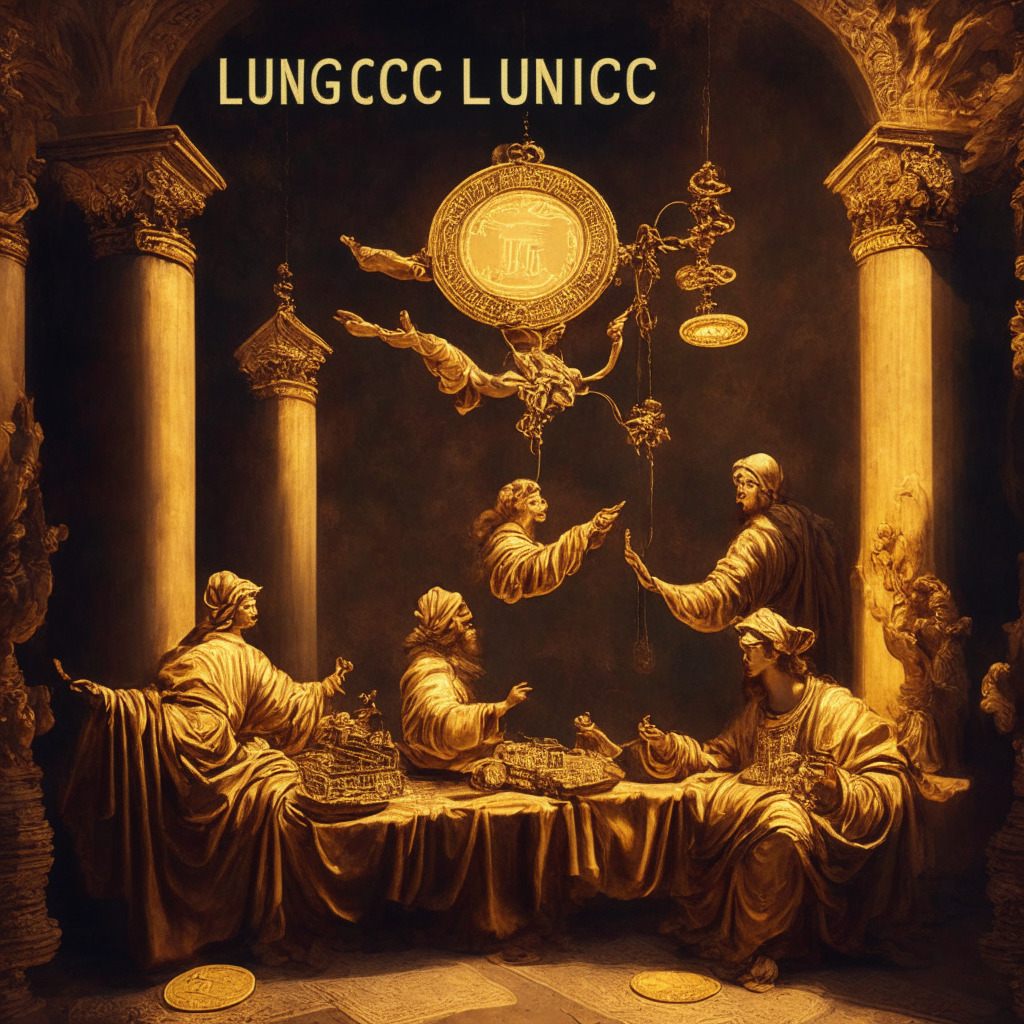Santiago R. Santos recently proposed building a new “crypto-friendly bank” to fill the void left by the collapses of major crypto-friendly banks. Despite challenges, Santos envisions assembling a team, guided by his experience from the crypto and traditional finance worlds, to create a bank servicing individuals, businesses, and institutions in the ever-growing crypto industry.
Search Results for: votes
DeFi Exit Scams Surge in May: Uniswap DAO Rejects Fee Proposal & Jimbos Protocol’s Bounty Offer
In May, over $45 million was lost to exit scams in the DeFi world, while exploits on DeFi protocols netted under $19.7 million. Uniswap DAO rejected a plan to charge liquidity provider fees, and Jimbos Protocol offered an $800,000 bounty following a failed negotiation with a hacker. The total value locked in DeFi protocols exceeded $50 billion again in late May.
Binance’s Web3 Reality Show Winner: zkPass and the Future of Decentralized Identity Verification
Crypto exchange Binance announced zkPass as the winner of its “Build the Block” Web3 reality show in the metaverse. The startup offers a decentralized identity verification solution for Web3 applications, preserving privacy using multi-party computation and zero-knowledge proof technology.
Reviving LUNC Prices: The Controversy Over Proposed 1.2% Burn Tax
The Terra Classic community explores methods to revive LUNC and USTC prices, including increasing the LUNC burn tax to 1.2%. However, the majority opposes the proposal, fearing it may harm trading volumes and deter whales. Despite this, Terra Classic is set for a significant v2.1.0 upgrade on June 14 and integration of Edward Kim’s AI app chain “Block Entropy.”
Uniswap Community Divided on Charging Fees to Liquidity Providers: A Tug-of-War Ahead
In a recent Uniswap community vote, 45% opposed charging fees to liquidity providers (LPs), while 42% favored a one-fifth fee on Uniswap V3 pools. The results could influence a formal vote later, showcasing divided community opinions on LP fee implementation.
Consensus 2023 Reflection: ICO Mania’s Mixed Legacy – Successful Projects and Scams Debated
At Consensus 2023, CoinDesk panelists reflected on the “ICO mania” period (2017-2018), highlighting both its opportunities and challenges. Initial Coin Offerings (ICOs) brought significant decentralized finance projects like Aave and 0x but also faced issues of investment fraud and securities violations, with 80% of ICOs found to be scams.
MakerDAO Drops USDP: DeFi Stability Concerns & Avenues To Maximize Revenues
MakerDAO’s community vote unanimously decided to eliminate the $500 million USDP stablecoin from its reserves, impacting Paxos and raising concerns about the stability of some stablecoins within the crypto ecosystem. The decision aims to increase revenues and improve the protocol’s capital efficiency.
Debt Ceiling Negotiations and Cryptocurrency: Seeking the Perfect Balance
The House of Representatives votes on postponing the debt ceiling until 2025 through the Fiscal Responsibility Act of 2023. This bipartisan agreement will impose limits on discretionary spending, but its impact on growth, innovation and the cryptocurrency sector requires a delicate balance between fiscal responsibility and flexibility.
US Debt Ceiling Chaos Spurs Diversification into Cryptos: Analyzing WSM, QNT, and More
Amid uncertainty over the US debt ceiling, market participants explore diversification into cryptocurrencies such as WSM, QNT, ECOTERRA, INJ, YPRED, LDO, and DLANCE. Enthusiasts consider the environmentally-focused web3 initiative, Ecoterra, an integral part of the global climate change strategy.
Binance Reopens TORN Deposits: Analyzing Security and Future Prospects in Decentralized Systems
Binance has reopened TORN deposits after a security breach on privacy-focused crypto mixer Tornado Cash DAO. Despite the hack, Tornado Cash’s protocol was not impacted, but concerns arise over potential risks and vulnerabilities in decentralized systems. Binance’s decisive actions, like monitoring projects, aim to ensure better stability and security.
Tornado Cash Regains Control: Attack, Recovery, and Future of DeFi Security
Tornado Cash’s governance token holders regain control over the protocol after an unexpected proposal by the individual responsible for a recent attack. This highlights continuous challenges faced by decentralized finance (DeFi) protocols in maintaining security and safeguarding against potential vulnerabilities.
Ethereum Anonymity Boost: Andreessen Horowitz’s Cicada Library Unlocks Anonymous Voting Pros and Cons
Andreessen Horowitz’s venture capital fund has released Cicada, a Solidity library that significantly advances anonymous voting on the Ethereum platform by preventing individual voter choices from being disclosed before polling ends. Combining Cicada with zero-knowledge group membership systems enhances voter anonymity, while addressing challenges in encoding blockchain votes, paving the way for more democratic voting systems within decentralized autonomous organizations (DAOs).
Tornado Cash DAO Takeover: Analyzing Risks, Governance, and Resilience in Decentralized Systems
The recent Tornado Cash DAO takeover brings attention to the vulnerability of decentralized autonomous organizations (DAOs) and the importance of proper governance to prevent malicious attacks. The privacy-focused Tornado Cash’s protocol remains intact, highlighting the need for an improved and secure DAO system to ensure protocol security and trust in blockchain technologies.
Cabin Network City: Blockchain-Powered Coliving for Digital Nomads and Creators
Cabin, a digital-native coliving city project, introduces a global alliance of self-governing neighborhoods for remote workers and creators through blockchain-powered membership. These affordable, accessible neighborhoods aim to foster human creativity by integrating cabins in close-knit communities, with citizenship access granted via NFTs and governed by the Cabin token.
Crypto Tokens and Sports Leagues: Karate Combat’s Innovative Fan Engagement Approach
Karate Combat, a fight league built on Hedera, utilizes crypto tokens as fan currency, enabling members to vote on their favorite fighters and increase their potential bonus pool. This innovative approach, distinct from traditional sports betting, creates a more democratic and engaging fan experience and may become a growing trend in sports leagues.
Ethereum Price Gains as Staking Trend Grows: Will ETH Hit $3,000 by Year-End?
Ethereum’s price gains follow the enabling of ETH staking withdrawals on the Lido platform. Despite net outflows, a massive sell-off hasn’t occurred, and staking trends put ETH in a favorable future position. EcoTerra and AiDoge, alongside Ethereum, are promising altcoins with market-shaping potential.
Tornado Cash Attack: Hacker’s Change of Heart Raises Questions on Trust and Blockchain Security
A new proposal surfaces to potentially restore Tornado Cash’s governance after a malicious attacker hijacked it. Quick action by community member Tornadosaurus Hex aimed to limit damage while the attacker surprisingly signaled intent to return governance control. This incident highlights the need for constant vigilance in blockchain cybersecurity.
Unexpected TORN Token Surge: Reversing Attack or Gigatroll Strategy?
Tornado Cash token (TORN) experienced a 10% increase after a proposal aiming to reverse malicious changes implemented by an attacker. The attacker’s proposal plans to restore governance state, with a good chance of execution. This incident emphasizes the importance of security and vigilance in the blockchain and cryptocurrency industry.
MetaMask Tax Controversy: Debunking Misconceptions and Clarifying Terms of Service
Accusations of MetaMask and its parent company, ConsenSys, collecting taxes on cryptocurrency transactions created controversy. However, the company clarified the claims resulted from a misreading of their terms of service, and they do not collect taxes on on-chain crypto transactions.
Debunking MetaMask Tax Controversy: Safeguarding Decentralized Systems from Misinformation
Misinformation recently claimed that ConsenSys updated its terms to collect taxes on cryptocurrency transactions. The company clarified the inaccuracy, highlighting the need for balanced evaluation and skepticism in the crypto community to prevent spreading false information. Transparency and proactive addressing of ambiguities are essential for trust-building.
Crypto Market Watch: Top Gainers, Losers, and DAO Attack Impact Unveiled
In this article, we explore the recent updates in the crypto market, including top gainers and losers. We discuss the security breach facing Tornado Cash and its impact on the TORN price. We also highlight Pepe’s swift market capitalization growth, the rise of DREP coin, and innovative Web3 projects like IDEX and DeeLance. Stay tuned for further developments in the fast-paced world of cryptocurrencies.
Tornado Cash DAO Breach: Analyzing Decentralized Governance and Security Challenges
A security breach at the decentralized autonomous organization (DAO) of Tornado Cash raised concerns as an attacker initiated a malicious proposal, gaining control over certain project aspects. This highlights the potential risks of decentralized management and emphasizes the importance of increased vigilance and robust security measures in ensuring a secure future for digital assets.
Governance Attack on Tornado Cash: Trust Eroded and Future Uncertain as TORN Price Plummets
A recent governance attack on crypto mixer Tornado Cash allowed attackers to gain full control, granting themselves 1.2 million votes through a malicious proposal. The attackers have been withdrawing TORN from the platform’s governance vault and trading it for Ethereum, causing TORN price to plummet 35% within 24 hours. Major crypto exchanges like Binance suspended TORN deposits as a precautionary measure.
Tornado Cash Governance Hijacked: Security Breach and the Fight to Regain Control
Decentralized crypto mixer Tornado Cash fell victim to an attacker who gained full control of its governance through a malicious proposal. The attacker’s control now poses risks to locked votes, tokens, and router functionality, emphasizing the need for investors to scrutinize proposals and prioritize safety in the evolving crypto landscape.
DAOs vs Traditional Corporate Structures: Finding Balance in the Crypto World
The rise of decentralized autonomous organizations (DAOs) brings the question of whether they can replace traditional corporate structures. Hector Network, a DeFi project, discusses the possibility of adopting a more centralized future, addressing governance dilemmas and practicalities of operating a decentralized entity amid legal and regulatory issues.
PEPE vs SPONGE: Battle of Meme Tokens and the Quest for Exchange Listings
PEPE, a meme token with a 2,500% growth since April, experiences a 63% drop since its all-time high. Despite the decline, high trading volumes and potential major exchange listings indicate a possible rebound. Traders may shift focus to newer tokens like SpongeBob (SPONGE) with promising gains and listings on prominent exchanges.
Binance Supports Terra Classic & Kava Upgrades: Implications for Trading and Security
Binance announces support for Terra Classic v2.0.1 and Kava 13 mainnet upgrades, resulting in suspension of LUNC, USTC, and KAVA deposits and withdrawals. The upgrades improve blockchain technology, security, and introduce new features while trading continues to function.
Anchorage Digital Integrates Snapshot: Balancing Convenience and Decentralization Debate
Anchorage Digital integrates the off-chain, gasless multi-governance client Snapshot, allowing its token-holding community to participate in governance proposals without hefty gas fees. This move aims to bring convenience and accessibility to users amid growing cryptocurrency popularity, while sparking debates over balancing convenience against decentralization and security guarantees.
Terra Classic Community Approves Game-Changing Proposals: The Impact on LUNC and Staking
The Terra Classic community approved four proposals aimed at increasing burn tax, LUNC burn, and staking, which could lead to significant network changes. These decisions follow LUNC’s price drop and include raising the LUNC burn tax to 0.5%, incentivizing staking, whitelisting Dapp contracts, and increasing community pool funds.
Ethereum’s Bedrock Hard Fork: Optimism’s Game Changer or Arbitrum’s Continued Dominance?
The Ethereum blockchain will undergo the Bedrock hard fork on June 6 as Optimism, a layer 2 scaling solution, introduces a major upgrade for improved modularity, simplicity, and Ethereum equivalence. This is expected to increase performance and functionality, while fueling positive market sentiment for Optimism’s Layer 2 network.
Anchorage Digital Enhances Crypto Governance with Snapshot Voting: Pros, Cons & Conflicts
Anchorage Digital integrates Snapshot voting for custody customers, aiming to improve participation in crypto governance. Supporting over 60 ERC-20 tokens, the off-chain platform eliminates interoperability issues and streamlines protocol interactions. Snapshot’s gasless voting feature enhances accessibility, reflecting the growing importance of efficient crypto governance mechanisms.
EU’s MiCA Legislation: Boon or Bane for the Crypto Industry and Its Future Growth?
The Markets in Crypto-Assets (MiCA) legislation, recently cleared by the European Union Council, aims to provide clear regulatory guidelines for cryptocurrencies within the EU. The legislation’s introduction could enhance credibility and legitimacy of the cryptocurrency market, fostering transparency and trust. However, concerns over excessive bureaucracy and stifling innovation have been raised.

